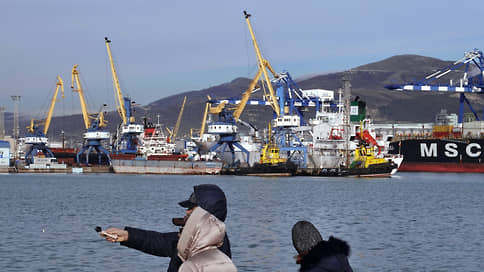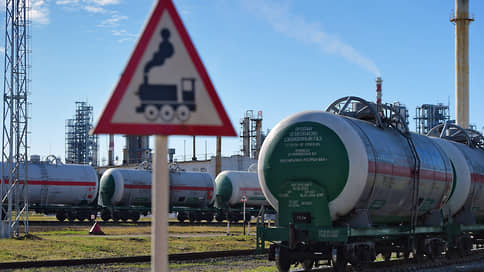Oil export restrictions through KTK can drag on for months

Shipment of oil from Kazakhstan according to the Caspian pipeline consortium system (KTK), which stopped the operation of two remote mooring devices in the area of the port of Novorossiysk, can be reduced by half by at least the next two months. Because of this, Kazakhstan will have to reduce prey, which in March was at a record level. Analysts note that compression of the supply in the world market can become a driver of an increase in oil prices.
The restrictions on supplies through the Caspian pipeline consortium (KTK) system, which, on March 31, by order of the Rostransnadzor, stopped the operation of two remote mooring devices (LPU-1 and LPPU-2), can be delayed for several months. This was reported to Kommersant several sources familiar with the situation. One of them explained that the chances of launching full pumping before the summer are “almost zero”, taking into account how much time it takes to eliminate the identified deficiencies.
Two of the three IPPs of the KTK terminal were disabled following an unscheduled inspection of the Rostransnadzor. As KTK explained, checks are carried out on behalf of the government of March 26 in all ports of the Azov-Black Sea basin, where loading and unloading work with dangerous goods (Novorossiysk, Temryuk, Sochi, Tuapse, etc.) are carried out. Checks are related to the collapse of tankers in the Kerch Strait on December 15, 2024.
According to Kommersant’s sources, in addition to purely technical disorders, KTK will have to decide the issue of obtaining a new class for two IP, which had previously applied to marine ships. “Given the possible litigation and long -term approvals, all this can drag on for months, during which only one IP will work,” the source said.
KTK connects the largest deposits of Kazakhstan to the coast of the Black Sea near Novorossiysk. The main shareholders of the consortium are Russia (31%), Kazakhstan (20.75%), American Chevron (15%) and Mobil Caspian Pipeline Company (7.5%), as well as Rosneft-Shell Caspian Ventures Limited (7.5%). Oil recipients are EU countries (Italy, France, Greece, Spain, etc.), Asia, as well as the United States.
According to Kommersant’s sources, shipment of oil from Kazakhstan (more than 80% of the country’s export goes through KTK), only half can decrease through VPPU-3. Typically, two of the IPP works two.
The pumping through the KTK for the first two months of the year amounted to 10.3 million tons, in February – 5.5 million tons, the source of Kommersant said, familiar with the statistics of the Ministry of Energy. Another interlocutor Kommersant notes that in March, supplies were at about 6 million tons. Last year, 63 million tons of oil were shipped along this route (a decrease by 0.7%), of which 54.9 million tons came from Kazakhstan. In KTK and the Ministry of Energy, the situation is not commented.
The Ministry of Energy of Kazakhstan reported that the shipments are still in the standard mode and there are no restrictions on the reception of Kazakhstani oil in the CTC system. The Chevron said that the production and supply of oil from the Tengiz deposit, which is being developed by Tengizchevroil, are carried out uninterruptedly.
The interlocutors of Kommersant explain that the full pumping will go until the oil storage facilities on the terminal are completely filled, that is, in about a week, Kazakhstan will have to reduce the extraction of raw materials.
According to Reuters, in March, oil production in the country was at a record level (almost 9 million tons) mainly due to an increase in production on tengiz. In April, it was planned to pump 6.5 million tons through KTK. If the pumping is below 2.5 million tons, then, according to Kommersant’s calculations on the basis of the export duty rate, the country will lose at least $ 170 million per month. In general, the export plan from Kazakhstan for 2025 was 70.5 million tons.
Nikolay Gorban, CTK CEO, in July 2024 in an interview with the corporate publication « Panorama KTK »:
« There are no KTK alternatives. »
The expert of the Financial University under the Government of the Russian Federation Igor Yushkov notes that Kazakhstan has practically no alternatives where it can be redirected by oil flows from KTK, taking into account that this is a system integrated with a number of deposits. Theoretically, he says, Astana can carry oil with tankers in the Caspian and ship in Azerbaijan, but the cost of transportation and pumping will be significantly higher, and the infrastructure will not allow to redirect significant volumes.
According to Mr. Yushkov, not the budget of Kazakhstan will suffer from the reduction of exports, but foreign oil companies that are included in the consortium and leading development of deposits in the country within the framework of the SRP. At the same time, according to him, Kazakhstan will cease to exceed OPEC+ quotas and compensate for overproduction at the beginning of the year, which can reduce the proposal of raw materials in the world market and maintain prices.
The Kazakhstan independent expert Olzhas Baydildinov calls the situation around the KTK “very alarming”, especially taking into account the constant attacks of the UAV. KTK reported the attacks in February and March to the oil -pumping stations (NPS) Kropotkinskaya and Caucasian. Mr. Baidildinov also expects that the capacities for storage at the KTK terminal with a volume of about 1 million tons will be filled within a week, after which Kazakhstan will have to either reduce prey or look for other routes. But, he points out, the possibilities of significant increase in supplies by rail and the sea are limited.








